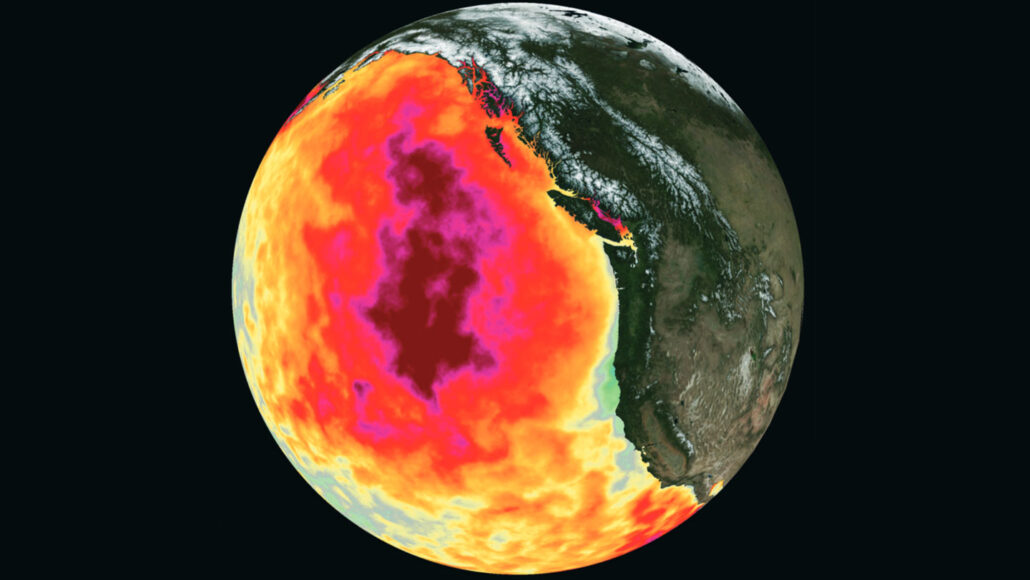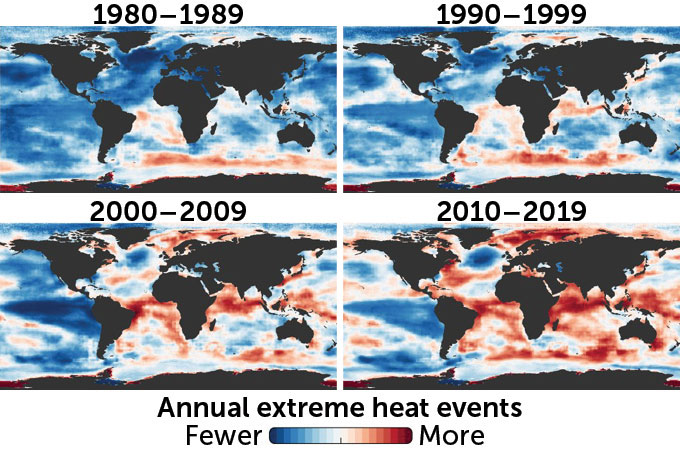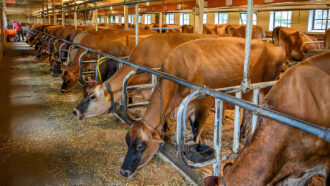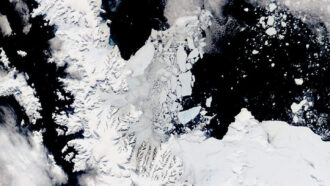annual: Adjective for something that happens every year. (in botany) A plant that lives only one year, so it usually has a showy flower and produces many seeds.
average: (in science) A term for the arithmetic mean, which is the sum of a group of numbers that is then divided by the size of the group.
climate change: Long-term, significant change in the climate of Earth. It can happen naturally or in response to human activities, including the burning of fossil fuels and clearing of forests.
context: The setting or circumstances that help explain an event, some statement or some conclusion.
coral: Marine animals that often produce a hard and stony exoskeleton and tend to live on reefs (the exoskeletons of dead ancestor corals).
ecologist: A scientist who works in a branch of biology that deals with the relations of organisms to one another and to their physical surroundings.
ecosystem: A group of interacting living organisms — including microorganisms, plants and animals — and their physical environment within a particular climate. Examples include tropical reefs, rainforests, alpine meadows and polar tundra. The term can also be applied to elements that make up some an artificial environment, such as a company, classroom or the internet.
forest: An area of land covered mostly with trees and other woody plants.
Hawaii: This central Pacific island chain became the 50th U.S. state on Aug. 21, 1959. Moving from west to east, its eight major islands are Niihau, Kauai, Oahu, Molokai, Lanai, Kahoolawe, Maui, and Hawaii (also known as the Big Island). The entire crescent-shaped island chain spans some 2,400 kilometers (1,500 miles). Each of the state’s islands was created from one or more volcanoes that long ago sprang up from the ocean floor.
kelp: A type of large seaweed that is usually a type of brown algae. They grow underwater and form large forests, providing habitat for many organisms. Some kelp forests are so large they can be seen from space.
marine: Having to do with the ocean world or environment.
migration: (v. migrate) Movement from one region or habitat to another, especially regularly (and according to the seasons) or to cope with some driving force (such as climate or war). An individual that makes this move is known as a migrant.
wave: A disturbance or variation that travels through space and matter in a regular, oscillating fashion.
weather: Conditions in the atmosphere at a localized place and a particular time. It is usually described in terms of particular features, such as air pressure, humidity, moisture, any precipitation (rain, snow or ice), temperature and wind speed. Weather constitutes the actual conditions that occur at any time and place. It’s different from climate, which is a description of the conditions that tend to occur in some general region during a particular month or season.
whale: A common, but fairly imprecise, term for a class of large mammals that lives in the ocean. This group includes dolphins and porpoises.










